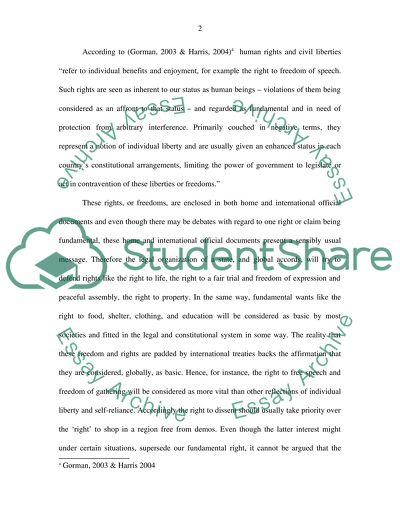Cite this document
(“Law: Human Rights Essay Example | Topics and Well Written Essays - 3000 words”, n.d.)
Retrieved from https://studentshare.org/environmental-studies/1420437-human-rights-law
Retrieved from https://studentshare.org/environmental-studies/1420437-human-rights-law
(Law: Human Rights Essay Example | Topics and Well Written Essays - 3000 Words)
https://studentshare.org/environmental-studies/1420437-human-rights-law.
https://studentshare.org/environmental-studies/1420437-human-rights-law.
“Law: Human Rights Essay Example | Topics and Well Written Essays - 3000 Words”, n.d. https://studentshare.org/environmental-studies/1420437-human-rights-law.


